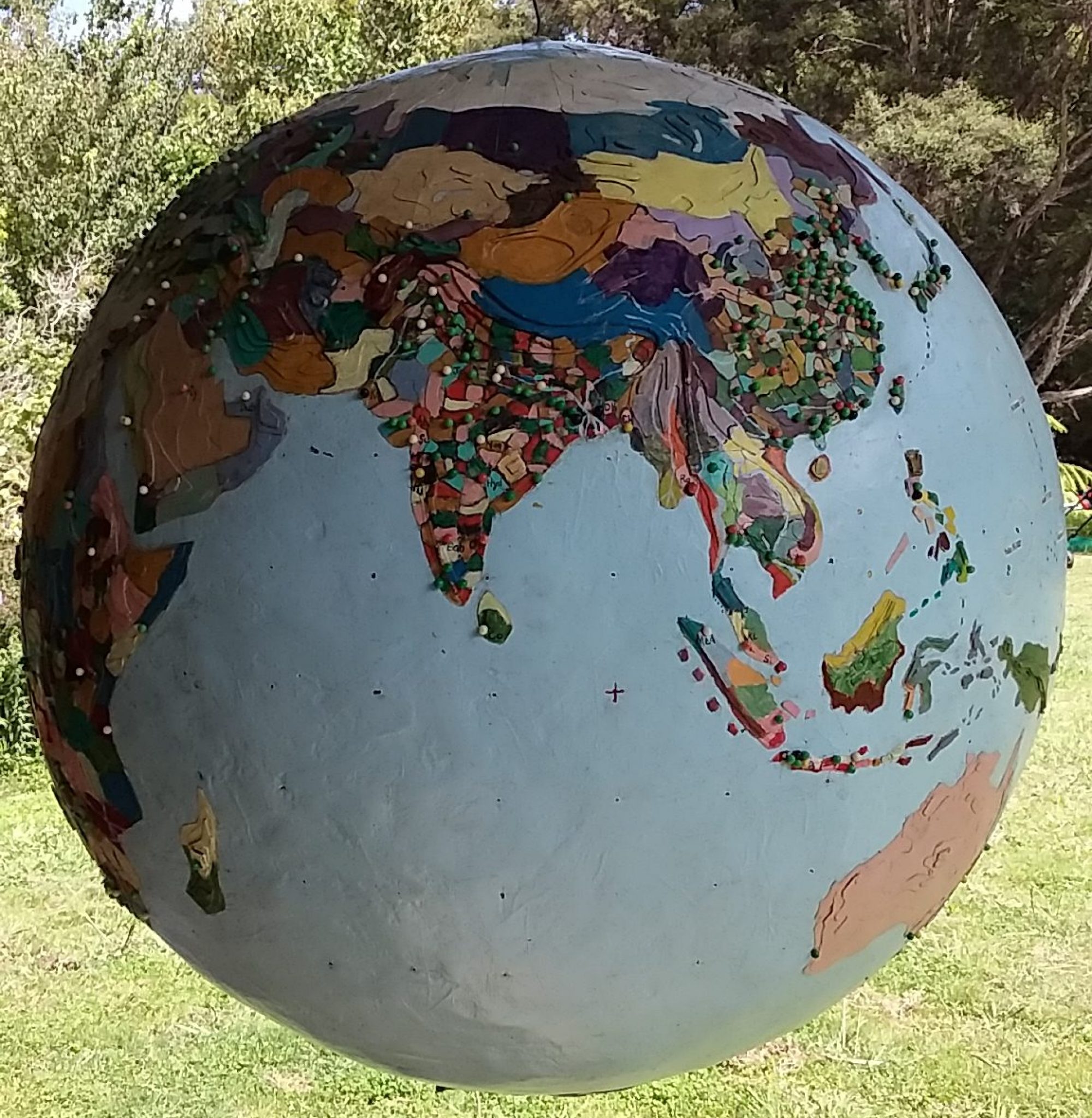The Surakarta metropolitan area (population 3.7 million) is on the Bengawan Solo river whose upper catchment climbs the volcanoes which mark the boundary of the millisphere I call Surakarta – a bit under seven million.
Surakarta is where Indonesia’s president Joko Widodo is from, and where he ran his furniture manufacturing business. Commonly known as Jokowi he was the mayor of Surakarta from 2005 to 2012 before moving on to be governor of Jakarta in 2012 and president of Indonesia in 2014, becoming Indonesia’s first president who did not come from an elite political or military background.
At the age of twelve Jokowi started work in his father’s workshop, experiencing three evictions during his childhood. As mayor he initiated an interactive relationship with the people of Surakarta, making regular, unannounced visits (Blusukan) to markets and slums. Surakarta (the city that does not sleep) included “informal” flood-prone settlements along the Solo river, which the city wanted to turn into parks.
We had stayed a few days in Surakarta in 2007. In the shade of the Sultan’s palace, in the middle of town, I’d escaped the heat and sketched an elderly gamelan orchestra playing on brass gongs, from big to small, and tapping with hammers on wooden xylophones, each with their own rhythmic part. A few middle-aged dancers practiced their moves. It was more restful than being hauled through the batik fabric markets.
In the hot crowded market a woman with a headscarf and a microphone was haranguing a crowd. I picked up the words “America” and “Satan.” New York’s twin towers were still fresh in all our memories. Back at the backpackers I sat drawing tropical fish in an ornate aquarium with carved teak surrounds, while drinking Kopi Susu (local coffee with sweetened condensed milk, in a glass), and smoking Indonesian cigarettes. Ten large goldfish glowed under the fluorescent light, and a few, mostly Dutch, travellers came and went.
It was in Surakarta that we first started using warungs on our own. These informal, roadside restaurants with oil-cloth covered tables and rough benches, presided over by a cook, with a wok and an LPG burner, turned out mouth-watering classic dishes that were cheaper than at the “real restaurants”.
Surakarta has undertaken a “more participatory” resettlement approach than other Indonesian cities. Slum dwellers were issued with city resident cards before being forced to give up their central sites and move to locations without services, and some unauthorized squatter settlements were brought under city control. Under Jokowi, street vendors were relocated to new markets, and he renovated old ones, freeing up traffic. Jokowi brought some of these policies with him to Jakarta.
Corruption is legendary in Indonesia. It is estimated that the Indonesian government that left power in 2014 stole as much as US$ 12 billion. Jokowi came in with a promise to fix Indonesia’s failing infrastructure and to pay for it he initiated a tax amnesty in which Indonesians declared US$ 366 billion of previously undeclared assets.
In Surakarta, a decade ago, you got by with cash, now, with phones and apps the informal economy is being moved into the taxable economy.
In 2007 we took a tour up a volcano to where tea was grown, ostensibly to visit an ancient Hindu temple. The brilliantly variegated Javanese coleus, now know as Solenostemon scutellarioides, grew beside the road. The gardens lining the rain-fed rice paddies on the fertile volcanic slopes were a “permaculture” mix of coconut, cashew, cloves, tobacco and vegetables, tended by small kampongs (villages). Down below lay the Surakarta metropolitan area under a heat haze of burning plastic.
We found Indonesians remarkable secular, animist even, but in a country of 260 million, and climbing, there will always be extremists. In 2016 a suicide bomber, riding a motorcycle, blew himself up at the gates to the Surakarta police station, chanting ISIS slogans, and there are fundamentalist Indonesians who have as many children as possible, because “God wants a world of muslims.” It might be what God wants but it is not what, already crowded, Java needs.
On September the 11th 2018, thousands of anti-Jokowi protesters walked down the main streets of Surakarta under the #2019ChangePresident banner.
Jokowi faces many challenges. Population growth is number one. Corrupt families and religious fanatics are other challenges Indonesia faces in the 2019 election.
